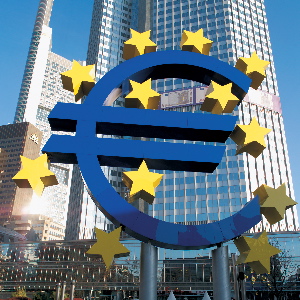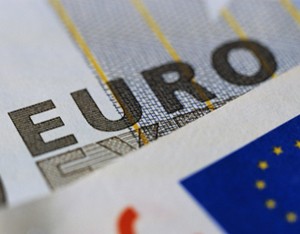 Credit: European Central Bank
Credit: European Central Bank
What’s Going On In The Eurozone? The Greek Stalemate Explained.
Last Monday, a top level meeting of Eurozone finance ministers in Brussels failed to yield a solution to Greece’s spiraling debt crisis. Greece finds itself isolated after its newly elected government has openly vowed to unilaterally end the austerity measures the country has been faced with since 2011.
The so called ‘Troika’ – the European Central Bank, the European Union Commission and the International Monetary Fund – was responsible for extending a bail-out program to Greece, worth E240 billion ($273.3 billion) on the condition that Greece severely cut back its government’s expenditures.
The program is set to end on February 28th. If Eurozone leaders fail to reach an agreement on extending or renewing the current bailout program by this Friday, the Troika will end its financial support to Athens.
With such a tight deadline, the world turns to Brussels this week for a showdown of epic proportion between Greece’s new prime minister Alexis Tsipras, his finance minister Yanis Varoufakis and the other eighteen Eurozone finance ministers.
The source of all hostility between the opposing factions is the electoral promise Tsipras made to his electorate, namely to singlehandedly bring an end to the current conditions and austerity requirements that were built into the bailout program. After his radical leftwing party Syriza rose to a clear victory in January, Tsipras seemed more determined than ever to deliver on that promise.

Euro Currency Bank Notes. Credit: US State Department
Greece’s prime minister is vying for a transitional period after the program ends on February 28th, which would allow time to renegotiate the agreement and allow for a partial annulment of its debts. In the meantime Tsipras is working on other electoral promises too, such as providing free electricity to the poor and raise minimum wages.
The Eurozone’s group of finance ministers, led by Dutch finance minister Jeroen Dijsselbloem, is strongly opposed to all Greek demands for renegotiation of the current bailout package and urges the country to commit to paying back its debts. It was this stalemate that led to a four-hour stare down on Monday, with neither party willing to blink – leading more and more financial markets to speculate on a possible “Grexit”, the exit of Greece from the Eurozone.
As Friday’s deadline draws dangerously close, it seems Greece is signaling willingness to reach a temporary agreement with the Eurozone before it’s too late. Greece’s government is expected to send a formal request to Brussels on Thursday asking to extend the current loan agreements by four to six months. In that period Greece will try to renegotiate contracts with its creditors. It remains to be seen whether Greece will commit to all existing requirements in its formal request for extension, which seems unlikely given Tsipras and Varoufakis past resistance.
Pressure on Athens to work towards a durable solution is mounting, also from outside of Europe. US Treasury Secretary Jack Lew urged finance minister Varoufakis today to come to an agreement, warning that Greece would face “immediate hardship” without one. Earlier last week, President Obama emphasized the importance of returning Greece to a path of sustainable growth. “Economic growth and stability within the Eurozone is vital to both the United States and the global economy”. That is why many in the US are becoming (yet again) increasingly worried about the growing antagonism within the Eurozone.
The Eurozone’s demands for full compliance by Greece with the current bailout requirements might look logical from a Brussels point of view, or Berlin for that matter. However, there seems to be an enormous disconnect in Europe with the Greek perspective, which is one of a nation that has been struck by economic ruin for years.
The Greeks have sent a clear message by democratically electing a radical leftwing party to power. Now it is up to Tsipras, Varoufakis, and their government to show their constituents that democratic systems revolve around reaching durable compromise, even if that means you cannot fully deliver on your electoral promises – a message that is equally applicable to their counterparts in the Eurozone.
Stay tuned for more news on Greece later this week!






[…] deal with Greece. Previous attempts by Greece to renegotiate the terms of their bailout program failed last Monday, causing extra pressure to assure an agreement on the extension of the bailout program […]